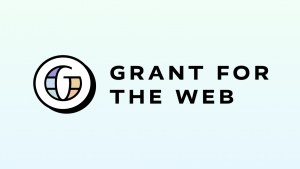Congratulations to Our 157 June CC Certificate Graduates!
mercredi 2 octobre 2019 à 16:24From June—August 2019, Creative Commons hosted eight CC Certificate classes for Academic Librarians and Educators. Participants in the classes studied Creative Commons licenses, copyright, the public domain, and open practices. Certificate students developed open licensing proficiency and deepened their understanding of the broader context for open advocacy. See examples of the assignments participants shared under CC licenses here!
Graduates from these classes included 67 educators and 90 librarians. Together, they joined the Certificate alumni community of 442 remarkable people making extraordinary changes in every region of the world. From translating Certificate content in multiple languages, to hosting workshops to developing entire graduate-level courses, CC Certificate alumni bring a new level of advocacy to open education and open access.
#MondayMotivation my @creativecommons certification came in! Still super proud of the work I accomplished and the knowledge I gained to move forward in my librarianship. #LibraryTwitter pic.twitter.com/DmFCrcTXcp
— Elizabeth Beaver Batte (@beaverbatte) September 9, 2019
<script async src="https://platform.twitter.com/widgets.js" charset="utf-8">
Image: Elizabeth Batte tweeted her Certificate graduating from the June 2019 class. She will join Jeanne Pavy, another June Certificate graduate, and present how they plan to use gained knowledge on campus, and the impact of CC licenses in higher education at the 2019 LOUIS User Conference on October 15.
The 2nd #Creatives #Commons Algeria Chapter meeting was held this morning at the University of Bejaia. I’ve given a session titled: what is Creative Commons? @algeria_cc @creativecommons pic.twitter.com/OelHf0o6q8
— Kamel Belhamel
(@kamelbelhamel) September 24, 2019
<script async src="https://platform.twitter.com/widgets.js" charset="utf-8">
Image: Certificate alumnus, Kamel Belhamel, puts his CC knowledge to great use at the University of Bejaia, in Algeria. View his slides and the 2nd CC Algeria Chapter meeting notes.
Here’s what our alumni are saying:
- 72% use the knowledge they gained from the course at least weekly
- 86% use the knowledge they gained from the course at least quarterly
- 62% are consulted by colleagues as an open licensing expert since graduation
Interested in taking the CC Certificate? Don’t miss out—we are now accepting new registrations for our 2020 courses!
The post Congratulations to Our 157 June CC Certificate Graduates! appeared first on Creative Commons.



